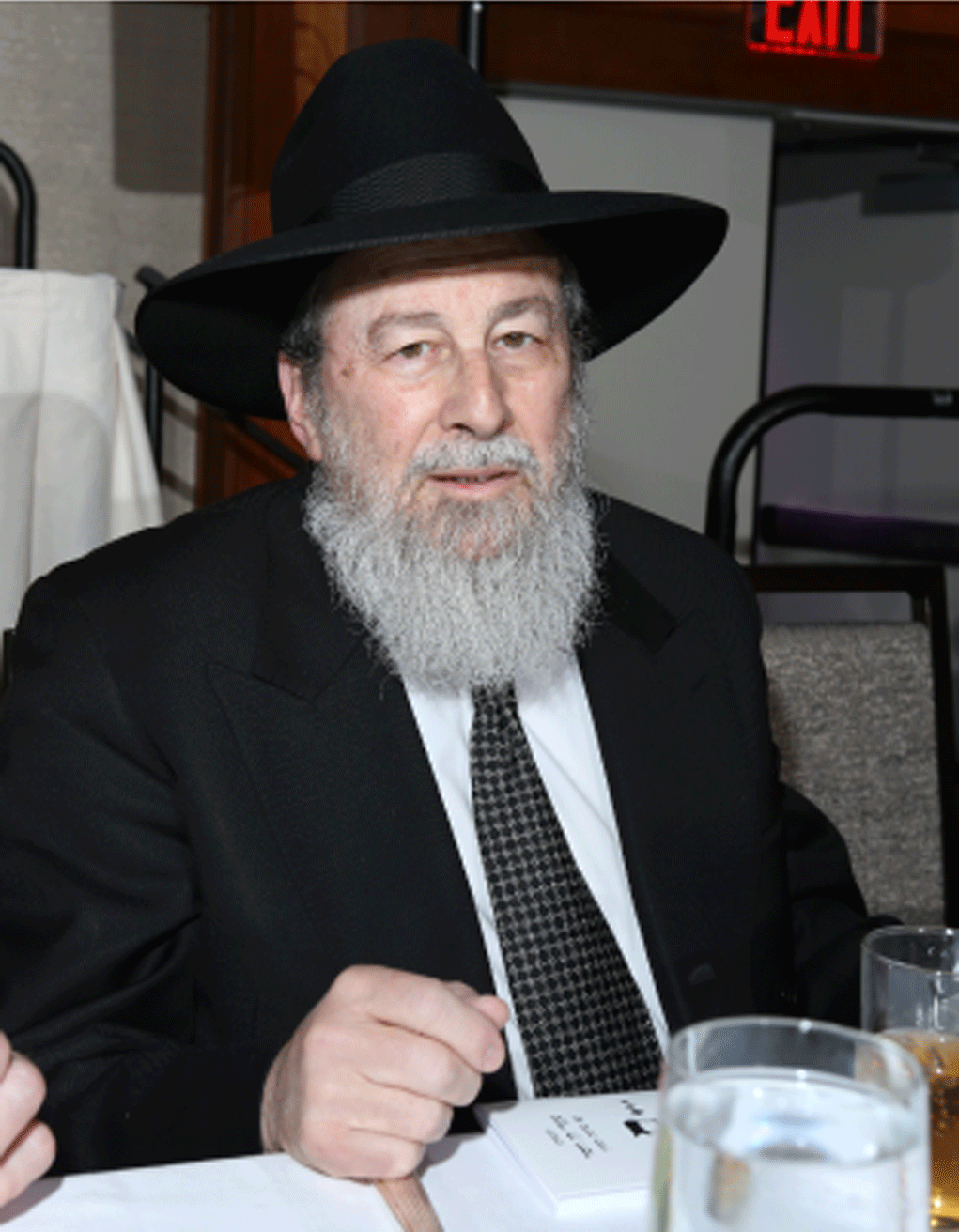Guilt eats away at you. It finds its way into your subconscious and doesn’t let you rest.
I have been experiencing precisely those feelings ever since I heard the news on Friday of the passing of Rav Aaron Brafman zt”l, menahel of Yeshiva Derech Ayson in Far Rockaway.
I am not a talmid of his and I never learned by him, but I felt close to him. As a bochur, I would read his contributions to the Jewish Observer and always felt that he hit the nail on the head. He understood the problems of our generation and tried to address them. Not always were his solutions feasible or doable, but we all know that recognizing the problem itself is perhaps the most important step in ultimately addressing it.
We became fairly friendly after participating together in a session at an Agudah Convention about the frum media, and then, a short time later, we happened to spend a week of summer bein hazemanim together in the same locale.
So why the guilt?
Because just a few months ago, Rav Brafman called me. I asked him how he was doing and he was honest with me, saying that he really was not feeling well and some health problems were causing him much suffering. Then he said, “Despite my not feeling well, I felt compelled to call you, because I have no menucha from what is happening in the frum world in which we live.”
As a menahel of a mosad and a person who often advised bochurim, yungeleit and couples, Rav Brafman was extremely troubled by what he called this generation’s inability to deal with discomfort and adversity. Everything today is so “instant” that people can’t muster the ability to invest the effort necessary to properly work on relationships and middos. There is the high divorce rate, difficulties in shidduchim, and the fact that so many of our best and brightest are succumbing to all kinds of addictions. Rav Brafman felt that it is because of our inability in today’s instant generation to develop internal strength and resilience so that when nisyonos present themselves, we have the ability and wherewithal to draw on latent strengths to help us overcome them.
As Rav Brafman was telling this to me, I must confess, I wasn’t surprised. Anyone out there who observes society sees this. While on the one hand, the growth of the frum community has been nothing short of remarkable and perhaps even miraculous in the aftermath of the Holocaust, we all know that it has not been without collateral damage.
Rav Brafman made another important point as well. The external deterrents to sin that once upon a time worked have become almost obsolete. He explained: “We, yeshiva bochurim, were growing up in the ‘60’s, ‘70’s, ‘80’s and perhaps even the ‘90’s. Our external garb gave us pride in what we were doing and acted as a shemirah. If we wore our tzitizis out, if we wore a hat and jacket in the street, we understood that this garb demanded that we conduct ourselves in ways befitting that garb, and we would never go to places and venues that were not in consonance with our outer identification as bnei Torah.
“Similarly, people who wore Chassidic garb would never go to places that were not in keeping with the outer look that identified them. You understood that being a Chassidishe Yid had certain obligations.
“Today, however, what you wear doesn’t necessarily reflect a level of commitment to those ideals. Sadly, we see people dressed one way but openly engaging in conduct and leading their lives in ways that differ greatly from what is symbolized by their outer garb.”
What is the Solution?
At some point in the conversation, I asked him, “Rabbi Brafman, what is the eitzah? What would you like me to write? We are aware of the problem, but what is the solution?”
He replied, “That is exactly the reason for my call. The only solution is to learn mussar. Both bochurim and girls should be learning mussar daily from a fairly young age, and perhaps even more importantly, marrieds must engage in mussar learning or participate in vaadim that address the middos issues that they confront in their lives, both in marriage and in the workplace.”
As he was talking, I felt that although he was one hundred percent correct, his solution was still so “1990’s.” In the nicest way possible, I told him, “Rabbi Brafman, you are 100% right. There is no substitute for the hard, steady work of avodas hamiddos, especially in today’s generation, even more than in previous ones. Nevertheless, the primary task to give over these lessons rests upon the yeshivos and the homes. Writing an article about that will not change anything. People will read it, say, ‘Ho hum,’ yawn, turn the page, and try to see what other provocative thing Trump said yesterday.”
That is why I feel so guilty. I should not have answered him this way.
Yes, it may be so “1990’s” to say that the way to solve many of the middos problems and the inability to say no to instant gratification is by learning mussar…and yet, it is true.
The primary responsibility to inculcate this falls on the yeshivos and schools, but we would be misleading ourselves if we would say that the frum media does not have a role to play here.
Taking Responsibility for Our Personal Spiritual Lives
Instead of blaming so many of the other societal ills that we are facing, we must take responsibility for our own spiritual lives. Passing on a text message that says that you should light Shabbos candles five minutes early or you should say Perek Shirah or put money in this or that pushka at the exact opportune time to invoke Divine mercy may seem like an easy way of solving our problems, but that is nothing more than another manifestation of the “instant” generation in which we live, where everything has to be a quick fix.
When it comes to the really important things in life, there are no quick fixes. The truly vital things in life are only achieved through the hard work of avodas hamiddos, which requires sustained introspection that can only come through engagement in mussar and seforim devoted to self-improvement in avodas Hashem.
Learning Mussar…From the Age of Ten and Up
As a tribute to Rav Brafman, let me at least convey his thoughts on that day this past March when we spoke. He said that, first and foremost, we must try to rejuvenate the concept of mussar learning. If I recall correctly, he told me that Rav Chaim Kanievsky writes that his father, the Steipler Gaon, said that one can already learn mussar (from easier mussar seforim) with a child who is just ten years old. Both parents and rabbeim should make a point of learning mussar with their children and talmidim daily. Only with that constant inoculation do we have a chance of overcoming the tremendous challenges presented by living in our generation.
In addition, Rav Brafman said, learning with young bochurim or girls is not enough. In particular, after marriage, it is imperative to have a program through which couples can engage in tikkun hamiddos, either together or independently, in order to counter the corrosive impact posed by the increasingly self-focused hedonistic culture in which we live. Middos are the foundation from which everything else grows. One cannot be a frum Jew who scrupulously observes halacha if he is neglectful of middos. There is no other way to do it. One must learn the works of the likes of Rav Shlomo Wolbe or other baalei mussar and machshava or masters of Chassidic works.
Another reason I can’t help but feel a sense of guilt is due to the fact that although Rav Brafman was a generation older than I, he had more optimism that our community could successfully address its own problems than I do. While I was busy explaining that change must come from the leadership of the yeshivos and then it would perhaps trickle down to the people, Rav Brafman felt that we have an obligation to appeal to the people themselves, insisting that even if many won’t listen to the message, some will.
Let this article, calling for a sustained effort to cultivate the constant learning of mussar and seforim devoted to avodas Hashem, be l’illui nishmaso, and may the learning produce dividends above and beyond our wildest dreams.
Don’t delay. Make that seder today and involve the entire family. You won’t regret it.








